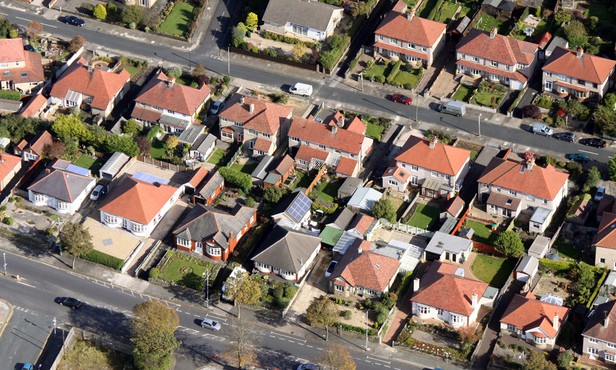Nigel Purves, chief executive of Wayhome revealed that house prices continue to cause affordability headaches for the majority of hopeful first-time buyers.

Housing supply is still considerably below the level of demand, according to Tomer Aboody, director of property lender MT Finance.
Aboody said a combination of buyers needing to move and taking advantage of the low-interest rate environment where a number of mortgages are sub-1 per cent is pushing up house prices.
UK house prices rose by 1.7% in September, equating to an increase of £4,400 to the value of the average property, according to the latest Halifax House Price Index.
This means that UK house prices are now at a record high of £267,500.
Nigel Purves, chief executive of Wayhome added that house prices continue to cause affordability headaches for the majority of hopeful first-time buyers.
He said: "With the furlough safety net officially removed and the average cost of a property at record highs, millions will be priced out of desired areas and forced into renting for far longer than they initially planned."
Aboody added: "With house prices at levels of growth surpassing the 2007 boom, the continued desire of buyers to move and find more space is at the top of the agenda.
"More supply is desperately needed in order to help keep property prices in check so that they don’t become beyond the means of the average buyer."
One way in which more properties can be released onto the market is by cutting or removing stamp duty for downsizers, encouraging them to move out of family homes into smaller homes, said Aboody.
Purves went on to outline that though the current landscape may be good news for sellers, the affordability crisis paired with restrictive lending rules continues to disproportionately affect those looking to take their first steps onto the property ladder.
He added: "It is clear that the property market needs to focus on finding innovative solutions to help hardworking people put down roots in homes they own.”
Anna Clare Harper, chief executive of SPI Capital, said: "There’s two important subtleties worth mentioning. Firstly, not all house prices have gone up. Growth has been far greater for houses than flats. The ‘boom’ in prices has been particularly strong for properties suitable for homeowners. Prices have increased in more spacious properties with gardens outside major cities.
"Secondly, while the stamp duty relief helped achieve one government objective by keeping confidence high through the pandemic, it is at odds with another government objective of making housing affordable and accessible for all."
Looking to what is next, Harper explained that construction has become harder and more expensive due to logistics issues, rising material costs and a shortage of labour.
As a result, she does not expect the UK is to meet its target 320,000 new homes per year in this context.
Harper added: "These two factors mean house prices are expected to continue to grow. However, we expect this growth to slow over the coming months as we settle in to the ‘new normal’."



